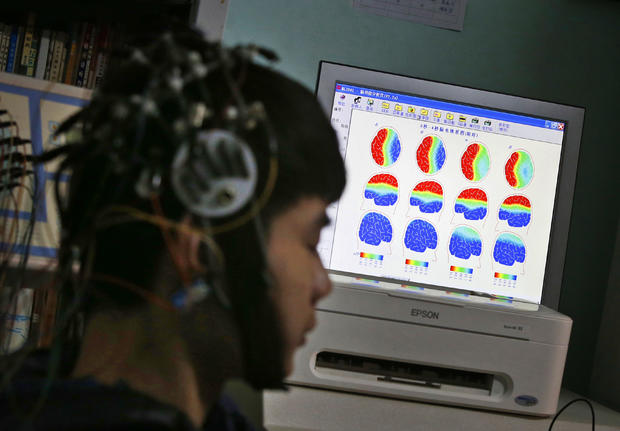How real a risk is social media addiction?
A blog post by social media marketer Jason Thibeault, "Why I just quit Facebook," is sparking new debate about the risks of social media addiction. Thibeault's essay went viral soon after he posted it on LinkedIn on Thursday, getting more than 700,000 views the next day.
Thibeault wrote that he quit Facebook because "my news feeds were becoming an addiction. They were a constant interruption pulling me away from the work that I was otherwise enjoying."
"Just imagine that Facebook is like a digital water cooler. I was drinking A TON of water every hour," he wrote. "Although I'm not a neuroscientist, I'd venture to say that what was happening was related to my Dopamine levels--when I was checking status updates on Facebook, my brain was rewarding itself with Dopamine; when I wasn't, and Dopamine levels dropped as a result, I started 'jonesing for a fix.'"
"So I quit," he wrote. "Cold turkey."
Thibeault is certainly not alone in his experience of getting a rush online. Internet addiction was first proposed as a psychiatric disorder in 1996, soon after the Internet entered our everyday lives.
According to a 2012 study posted on the National Institutes of Health website, "Internet Addiction Disorder (IAD) ruins lives by causing neurological complications, psychological disturbances, and social problems." It is still not officially listed as a psychiatric disorder in the bible of psychiatric disease, the Diagnostic and Statistical Manual of Mental Disorders (DSM-V), though the more narrowly defined Internet Gaming Addiction was added in May 2013.
Other subtypes of Internet addiction -- such as social media addiction -- have not been studied enough to receive their own clinical definitions or treatment recommendations. But some of the research on Internet addiction in general may shed light on Thibault's observations about social media.
Psychiatrist and neuroscience researcher Sean Luo of Columbia University told CBS News studies have shown that "3.7 to 13 percent of U.S. and 10 percent of South Korean Internet users express some symptoms of of inappropriate Internet use." He estimates that at least 1 percent of Internet users worldwide need treatment.
Symptoms for Internet addiction can be similar to addiction to anything else, and fall into two types of behaviors: an ever increasing need to engage with the object of the addiction, and a bad feeling when not getting enough of it. Luo says an Internet user worried that their online use is getting out of control should seek a professional evaluation. "It is not so much the particular behaviors" that lead to a diagnosis of inappropriate Internet use or addiction, he said, but "the severity, the functional status of the patient" and whether their behaviors "interfere with school, work, or social activities."
According to several recent brain imaging studies, severely effected Internet addicts show structural and functional brain abnormalities similar to those found in people with substance abuse problems. Other research has shown that Internet addiction frequently coexists with anxiety, depression, or an addiction to other things like alcohol or drugs.
Why did Thibault find Facebook, in particular, so addictive? He writes that it's because "we are essentially narcissistic and want to be the center of attention.... I want them to pay attention to me, to 'like' me, that's why."
According to Luo, so far "there are no published studies that demonstrate a correlation between personality disorders [narcissism] and any Internet addiction." But some aspects of social media activity (for example, getting "likes") appear to stimulate reward centers in the brain.
While Thibault's solution -- quitting cold turkey -- may work for him, Luo says it's not for everyone. (And it's worth noting that while Thibault quit Facebook, he remains active on LinkedIn, Twitter and other social media sites.)
According to Luo, "cold turkey might work for some, but others may need more help." He says there are "no FDA approved medications, and no randomized trials published for medications to treat Internet addiction."
Luo says long-established protocols for talking therapies for addiction can be worthwhile components of a treatment plan for Internet addiction. For example, he notes cognitive therapy and motivational interviewing have been proven to be especially useful for changing unhealthy behaviors.
In addition, studies of people who received treatment for conditions like depression or anxiety did report "improvement of symptoms of Internet addiction" when the other condition was treated.
Luo notes that potential treatments have to work in their own cultural contexts, and what works for one group may not work for another. The Daxing Internet Addiction Treatment Center in Beijing, China, for example, treats addicted teens with military-like exercise and discipline, as well as medication and other therapies, which may not go over so well in other countries.

